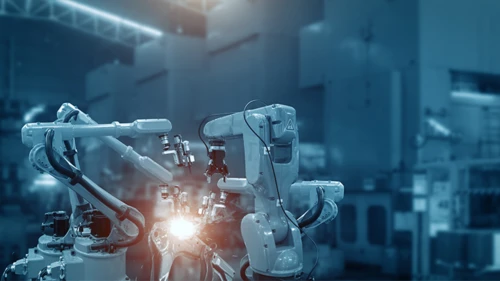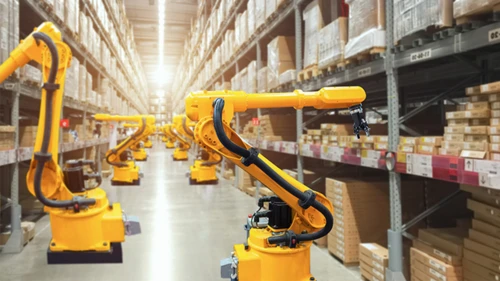
Podcast
Podcast: Ever heard about Industry 4.0?
Industry 4.0 refers to the upcoming fourth industrial revolution, which is urgently needed to revive growth.
Read more
Podcast
Industry 4.0 refers to the upcoming fourth industrial revolution, which is urgently needed to revive growth.
Read more
Nordea On Your Mind
Industry 4.0 is the fourth industrial revolution, which is badly needed to revive stalled productivity growth in the G7 economies.
Read more
Insights
What do you do when a global pandemic breaks out while you are right in the midst of a major working capital reduction programme to bring down leverage? Stein Eriksen, CFO of XXL, highlights their rights issue, accelerated customer migration from stores to online shopping, and stronger preferences for staycation.
Read more
Insights
In September 2020, the first bonds aligned to the Sustainability-Linked Bond Principles (SLBPs) were issued. Even though the fledgling market provides endless opportunities for structuring sustainability-linked bonds (SLBs), a comparison of the current issuers and their bonds reveals unexpected similarities.
Read more
Insights
The ratings system caters to a variety of investment strategies, allowing investors to tailor the output for their specific preferences. Marco Kisic, Nordea’s Head of ESG Research, explains the ins and outs.
Read more
Nordea On Your Mind
We explore what kind of recovery from COVID-19 is being forecast and and what is actually priced in by markets.
Read more
Nordea On Your Mind
Finnair CEO Topi Manner discusses the difficult decision to be first in the industry to do a big equity issue.
Read more
Nordea On Your Mind
Covid-19 has given an unprecedented shock to the world economy, as lockdowns caused sudden and sharp declines in demand, and we cannot safely assume that development of a vaccine or other therapy will make it go away entirely.
Read more
Podcast
Capital markets have rebounded from the COVID-19 shock, and consensus forecasts expect 2021 to be even better than the pre-pandemic 2019.
Read more
ESG
At Nordea we're now seeing broad interest in sustainable companies as an attractive long-term investment theme.
Read more
Insights
Ever since Poland became the first sovereign to issue a green bond back in December 2016, the race has been on to see which countries would follow. Now the market looks set to grow rapidly, with Sweden recently publishing its Green Bond Framework, Germany planning to issue its inaugural green bond in September and Denmark exploring an innovative new model for sovereign green bonds.
Read more
Insights
Majblomman is a well-known Swedish charity that raises money with the annual sale of special paper flower pins. When Majblomman implemented a fully digital campaign, Nordea’s Open Banking team enabled a real time overview of all incoming donations.
Read more